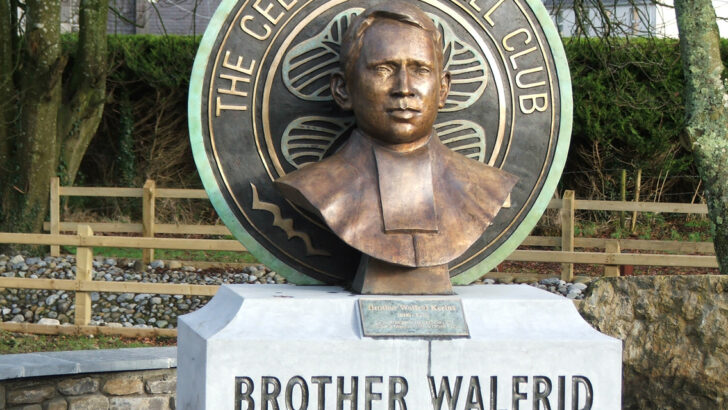Walfrid: A Life of Faith, Community and Football, by Michael Connolly (Argyll Publishing, £20.00 /€24.00)
This is an exciting account of the life of a man from the west of Ireland who has left a permanent mark on the history of modern Scotland. Dr Connolly dexterously explores the story which should fascinate everyone interested in the Irish Diaspora, even if they do not care for football.
The tale begins with the birth of Andrew Kerins in a family home near Ballymote, Co. Sligo, on May 18, 1840. His father farmed 19 acres. However, his father’s potato crop and the potato crops across Ireland failed in the great Famine of ‘Black ‘45’. That famine caused the death of a million Irish people and another two million to seek refuge from it in England, Scotland, Canada, the US and beyond. Andrew was among those who were displaced by the Great Famine.
Aged 15, he sold a calf and paid for a passage on a coalboat from Sligo to Glasgow. He was more fortunate than most of the Irish arriving in Glasgow at that time as he secured employment on the railway.
He began to attend classes after work in a school administered by the Marist Brothers in the East End of Glasgow. Then he became an assistant teacher in the school and eventually he decided to join the congregation.
Andrew received his formation in the congregation’s head-house near Lille in Northern France and was given the religious name Walfrid after a saint who had been recently canonised.
After his training had been completed Bro. Walfrid was assigned to teach in the congregation’s school in the East End of Glasgow. The East End was the most deprived part of the city and tens of thousands of the ‘Famine Irish’ had settled there. A large proportion of the boys attending the Marist school were on the edge of starvation.
Bro. Walfrid was a skilled organiser, as well as an excellent teacher. In conjunction with local St Vincent de Paul conferences he established a network of ‘penny dinners’ to ensure that the poorest children were never allowed to go hungry.
At that time football was becoming popular and he used it to attract the boys to school and to his various undertakings. Then he also discovered that the football teams and the football leagues he organised could be a useful source of revenue.
Eventually, with soccer becoming more and more central and important in the sporting life of Scotland, Bro. Walfrid with a number of friends formally established Celtic FC in 1888. The others were protégés of his and thus Bro. Walfrid is regarded as the founder of Glasgow Celtic.
The club that Bro. Walfrid founded goes from strength to strength. Its stellar record in 2023 reads: First British club to win the European Cup 1967 (Alex Gordon provides a glorious account of that successful campaign in The Lisbon Lions by Billy MacNeill and Jim Craig (Black and White Publishing), Scottish League Championship 53, Scottish Cup 41, Scottish League Cup 21.
Bro. Walfrid’s achievements have not been forgotten. The Celtic fans honoured him appropriately with a statue at the entrance to their stadium, as have his own people with a memorial at Ballymote.
And the Celtic FC are loyal to Bro. Walfrid’s insistence that it should always remain committed to its original charities. And Celtic in its matches with Rangers has come to stand for a certain kind of strong will Irish identity.


 Brother Walfrid Memorial in Ballymote his birthplace.
Brother Walfrid Memorial in Ballymote his birthplace. 